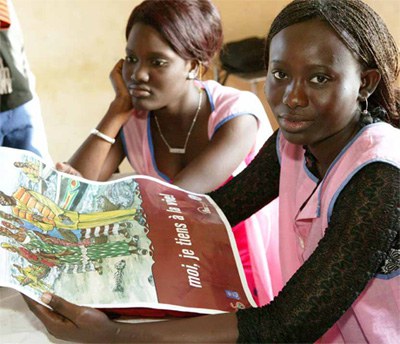
UNAIDS Guidance for Partnerships with Civil Society
This document emphasizes that UNAIDS, its Cosponsors and Secretariat (working at national, regional and global levels) should strengthen and operationalize meaningful and respectful partnership work with civil society. This partnership will enable the UN to deliver the targets and elimination commitments agreed in the 2011 Political Declaration on HIV/AIDS.
Major social transformations are rare without individual civic leaders, civil society organizations and social movements... Collective action for social justice has been the driving force of the AIDS response over the past 30 years. The leadership exercised by people living with and affected by HIV has revealed the power of civil society to focus and generate transformational change.
In the early days of the epidemic, civic dynamism and activist mobilization centered on a few key organizations. Yet HIV organizations now span all corners of the globeand have catalyzed profound change in the way that we approach health, human rights and development.
Antiretroviral treatment access in the South, the repeal of travel restrictions, TRIPS flexibilities, people living with HIV assuming service provision rolesall constitute the legacy of the efforts of myriad civil society organizations. Over the decades, civil society has induced even the most reluctant leaders to act and be accountable for their commitments on HIV.
Today, a new generation is demanding social justice and political accountability. Rapid technological innovation, such as social media, provides new opportunities for civic leaders and civil society coalitions to communicate and organize to shape their own destinies. Seismic geo-political shifts are giving rise to new geographies of leadership, new sources of solutions, reconceptualization of civil society and novel ways of workingfrom the local to the transnational. What has not changed is the need for inspirational leaders who can mobilize movements to generate and channel political demands for equity, dignity and sustainable development.
As momentum gathers on our journey of Getting to Zero - Zero new HIV infections; zero discrimination; and zero AIDS-related deaths and in implementing the United Nations 2011 Political Declaration on HIV/AIDS, it is increasingly clear to me that civil society must continue to provide not only inspiration but political incentives for sustained leadership. (Michel Sidibe, UNAIDS, 2011)
